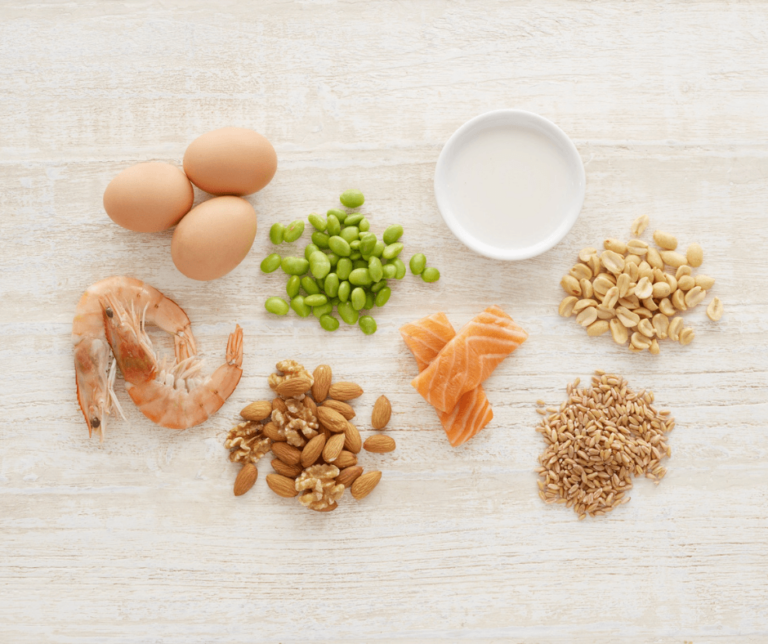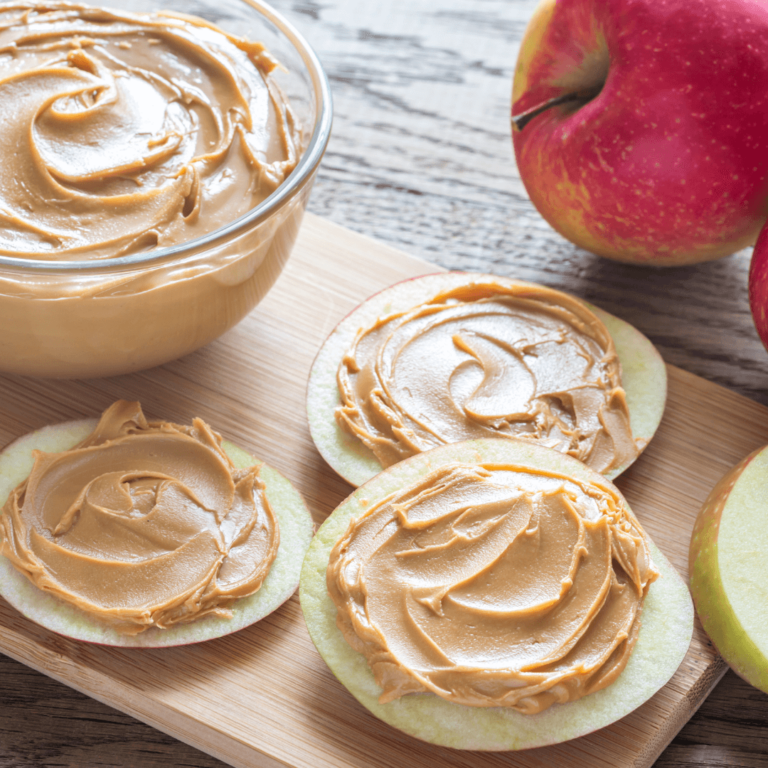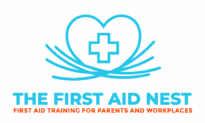When to Introduce High Allergy Foods

Guidelines about introducing allergy foods to infants have changed a lot over the last few decades.
No wonder parents are confused about the rules of introducing food to their children.
In this article we are going to lay out a guideline for you to follow for how to introduce nuts to your baby.
Not so long ago, pregnant women and new mums were being told to “avoid eating nuts in your pregnancy, because it can cause allergies to your unborn child, and NO! You should definitely not be giving your 6 month old baby peanut butter! Are you mad?!”
That may be a bit dramatic, but this is a loaded topic and one riddled with myth and legend. We now know that introducing common allergenic foods to your baby, reduces the risk of childhood allergy by 80%.
Introducing allergy foods under 12 months
In 2000, the American Academy of Paediatrics released a position statement recommending the avoidance of cow’s milk until the age of 12 months, eggs until 24 months, and nuts and fish until 36 months in infants at high risk due to family history and eczema for example. This was supported by evidence from two studies, however these recommendations were shown to be based on consensus rather than direct evidence.
-Canadian Medical Association Journal Nov 2015
In 2006, a few years after this, studies started to be published that showed this previous advice was not accurate.
A study of 1600 children enrolled at birth showed that food allergies were more common in children that were exposed to certain foods later than 6 months old.

Another study in 2008 showed that Jewish children in the UK, were 10 times more likely to have a peanut allergy than the children in Israel. Why? Maybe because they introduce peanut early to the babies in Israel and the introduction to peanut in the UK was delayed.
In 2010 there was a study that showed babies introduced to allergy foods like egg between 4-6 months of age, had a lower rate of allergy than children who were introduced to egg later.
I won’t go on, but you can see evidence clearly building a case against delaying introduction of foods of any type, especially common allergenic foods. (Check out allergy symptoms here and what to do about them!)
It is even more important for children with a strong family history or children with eczema, to be given these foods early on too.
If you are still not convinced, I don’t blame you. It can be a scary time introducing foods, let alone common allergy causing ones! So let me tell you more….. In the study I talked about above about the Jewish children and the prevalence of peanut allergy, they could find no other reason for this allergy in the same demographic of children in two different countries, other than that they were introduced to the food earlier.
So Dr Gideon Lack, became the lead investigator on the LEAP study. The LEAP Study (Learning Early About Peanut) showed that by consuming peanut early on as an infant, reduced the rate of peanut allergy by 81%. That is hard to ignore.
It is still not uncommon to hear about parents giving peanut butter to their children whilst sitting in their car outside the hospital.
This just goes to show how frightened and apprehensive parents really are, (put your mind at rest by grabbing our FREE Introducing Foods Guide here)
The top 9 common allergenic foods should all be introduced by the age of 1 year old, they are –
- Cow’s Milk
- Egg
- Sesame
- Peanut
- Tree nuts
- Wheat
- Fish
- Shellfish
- Soy

So my recommendation today is take a look at the guide below on how to introduce foods at home, including nuts and egg and remember that statistic of 81% reduction rate in peanut allergy with early introduction, be comforted by that number.
Although 10% of under one year olds now have a diagnosed food allergy, 90% don’t!
How to actually give the high allergy foods like nuts to your baby
Here is a great way to gradually introduce nuts or any other solid foods at home if your child does NOT have an allergy to them.
This is just a guideline for parents who prefer to have a structured introduction process. It is equally ok to just give these foods as you wish!
- Start by giving 1/8 of a teaspoon of good quality nut butter, ground up nut or scrambled egg.
- Then you can wait 30 mins before doubling that to 1/4 of a teaspoon.
- Now wait a further 30 mins before giving 1/2 a teaspoon and then…
- You guessed it, another 30 mins before giving a whole teaspoon!
You can get this guide on a free download here.
It is uber important to keep that food in the diet on a regular basis once they are introduced to it.
Once they are fine with all the nuts, you can buy a bag of mixed nuts and grind them up together, keep them in a container in the fridge (it’ll keep for months!) and add a scoop to their yoghurt, bolognese or cereal at least once a week! This is an easy way to know that they have regular exposure to all the nuts.
You can get macadamia, peanut, almond, cashew & brazil in paste form. You can use hazelnut meal too. Any other nuts can be blended up to form a fine meal, you can read more about this in this blog post about nut preparation.
We recommend you do this in the morning so that you can spot any potential reactions.
Have you introduced nuts or egg to your baby yet? If the answer is yes, how did you do it? Tell us in the comments below.
Want more? We’ve got you covered…
Our Baby First Aid Courses
Our baby first aid courses are available in person in your home and online. We run classes in your home with groups of 2, 4 or up to 10 in Sydney & Melbourne and you can book in 3 easy steps!
- Pick your class
- Follow the prompts to purchase
- We will contact you within 24 hours to lock in your date of choice
Our First Aid Certificate Courses
We run most of the popular first aid courses Australia wide. HLTAID011 Provide First Aid, HLTAID009 Provide CPR, HLTAID012 Provide First Aid in an Education & Care Setting, RAMOAP (anaphylaxis), Mental Health first aid and CPR/LVR to name a few.
Book your public spot online or contact us if you have a group of 5+ people for onsite training.
Here are some other resources you may enjoy!
FREE GUIDE: Your Virtual Baby First Aid Kit
FREE GUIDE: Introducing Common Allergy Foods & Allergic Reactions
FREE Workplace Emergency Preparedness Plan: Grab this at the bottom of every page!
Follow for baby & child first aid and allergy info and tips on Instagram, TikTok & Facebook all @thenestcpr
